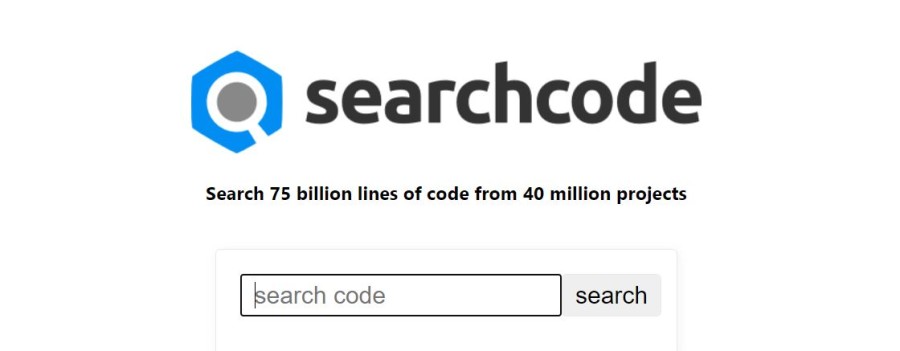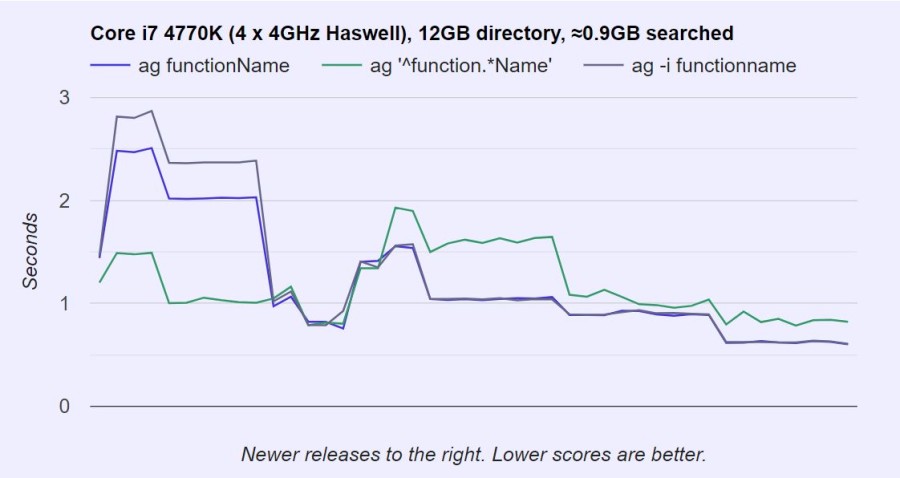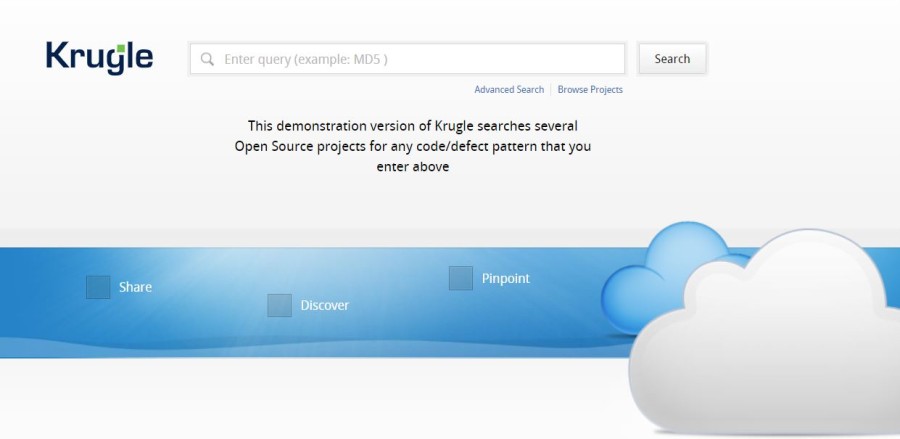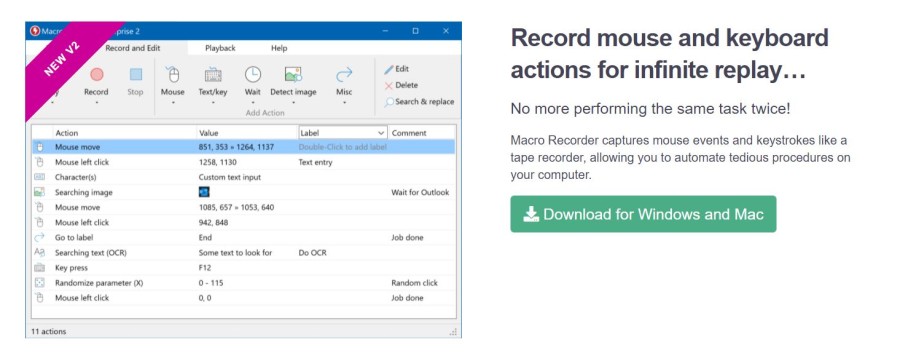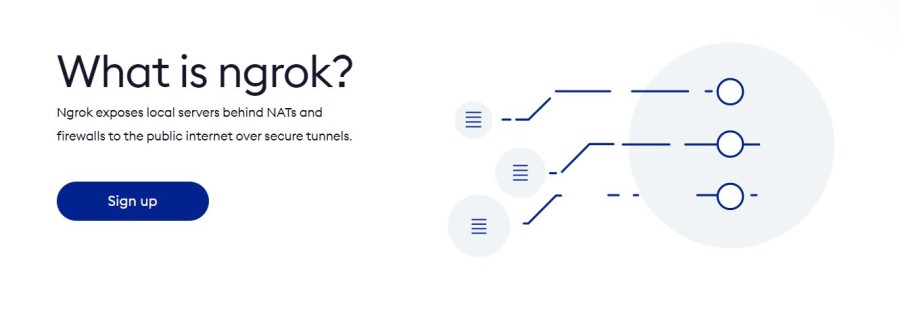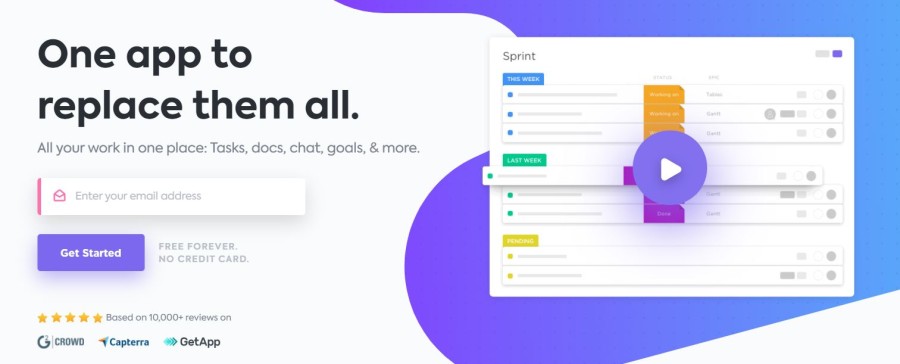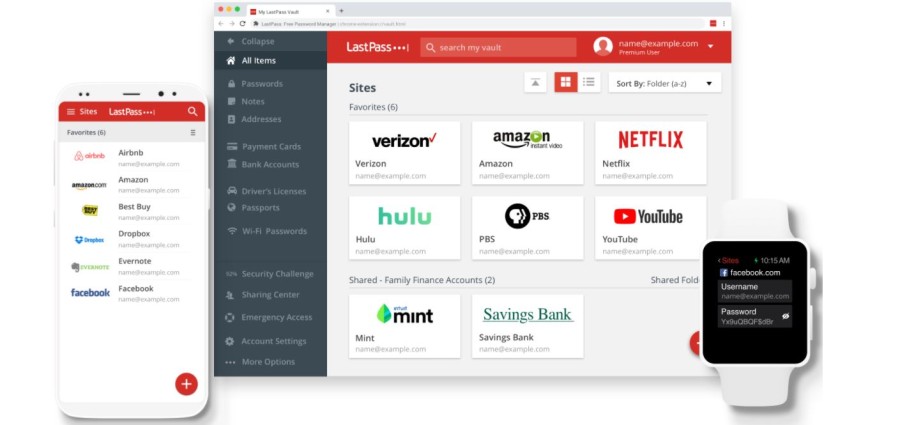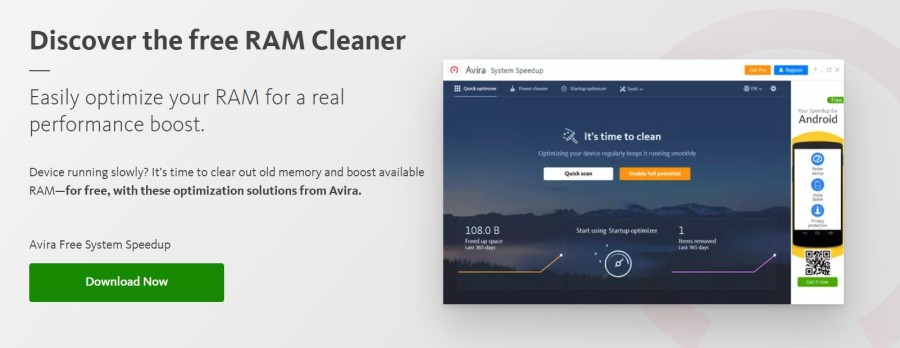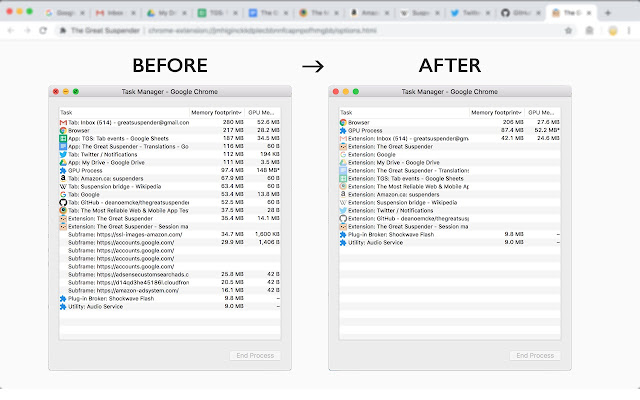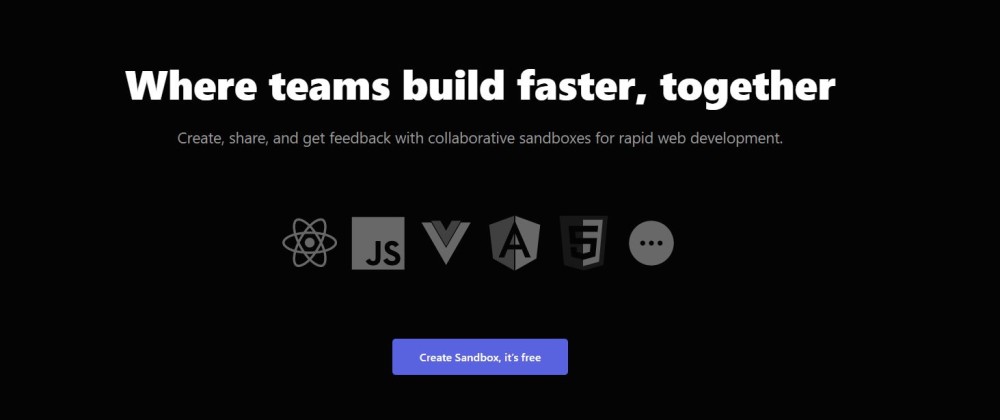Here’s the thing, being busy and being productive are two different things. You can be busy doing anything that may or may not be productive or involve accomplishing much. Or, you may spend your maximum time doing repetitive tasks that can otherwise be automated or scrolling through emails. On the other hand, being productive means doing quality work efficiently, such as writing code, testing and executing code, and thinking about logic without procrastinating or feeling exhausted. Efficiency and effectiveness are essential attributes of a programmer. Those programmers are in high demand who can write high-quality lines of code at a faster speed. It’s because they can help companies or clients solve their problems quicker than others. At this time, you need to be both hard-working and smart. Of course, you need to be highly skilled to write quality code, but you must also employ automation and productivity apps to help ease certain processes. It may include various tasks such as code search, task management, testing, time tracking, code execution, password management, and more. Using different productivity apps, programmers can take charge of their time, manage tasks effectively, automate repetitive tasks, and make better decisions. In this article, I’ll be introducing some of the productivity tools for programmers in software development. Check them out!
Code Search Tools
If you want to understand the way systems are organized, you as a programmer must look for different files that comprise the entire system. And it is challenging to find specific code in larger software systems with thousands of files in several programming languages. This is where code search tools or code search engines come into play. They simplify the task of developers by allowing them to search the code they are looking for from various software projects. As a result, it helps them accelerate their code writing part and makes the development process faster. So, here are five code search tools.
Searchcode
Search 75+ billion lines of code with the help of Searchcode. It makes these lines of code available from 40+ million projects and features a search bar where you can enter some special character and hit enter. Searchcode helps you find functions, libraries, and APIs from real-world examples written in 243 programming languages across more than 10 code sources available publically. You can perform the search by entering special characters like:
i++;System.Linq;Backbone.Collection.extendapi.duckduckgo.com
Furthermore, you can filter code by repository, source language, or sources like BitBucket, GitHub, and Android.
The Silver Searcher
The Silver Searcher is an excellent tool by Geoff.Greer.fm that helps you search code. It was introduced as a clone of another tool, Ack, which has somewhat different features now. The tool is incredibly faster, almost 5 to 10 times faster than that of Ack. To date, they have released several versions to improve its performance, usability, features, stability, and other aspects. The Silver Searcher is so fast because it uses Pthreads to leverage multiple search files and CPU cores in parallel. In addition, its files utilize mmap() rather than reading into a buffer, and literal string search uses Boyer-Moore strstr while Regex search utilizes PCRE’s JIT compiler. Other aspects contributing to its speed are benchmarking each revision to detect performance regressions and profiling using Valgrind and gprof and calling pcre_study() before the same regex execution. Another impressive feature of The Silver Searcher is that it ignores certain file patterns from the .hgignore and .gitignore. If you don’t want to search some files in the source repository, you can add the patterns of those files to the .ignore extension. Furthermore, it positions all keys on its home row, and the command name is almost 33% shorter when you compare it to Ack.
Sourcegraph
Sourcegraph allows you to search code from more than a million open-source repositories. While searching, you can enable or disable case sensitivity, regular expressions, and structure search from the search field. You can also copy the full query. The tools help you search your repository without regex or escaping and review commits with more speed than grep and git log. In addition, you can also filter code by different attributes like language. To this day, 800k+ developers have used Sourcegraph for various purposes. It includes finding things fast in multiple repositories, navigating with references and definitions, making code changes, and integrating your code with different services. Sourcegraph can work seamlessly with your infrastructure, code, and tools. It supports:
Repositories like GitHub, GitLab, Bitbucket, Azure DevOps, etc.;Programming languages like Java, JavaScript, Python, PHP, Go, C, C++, C#, Ruby, Scala, Kotlin, Perl, JSON, Groovy, etc.;Tools like Chrome, Firefox, Jira, Sentry, Datadog, JetBrains, Atom, npm, etc.
You have deployment options like self-managed and managed on AWS, GCP, or Azure. For self-hosted, Sourcegraph is FREE to use for a maximum of 10 users, offers team-oriented functionality, and supports extra code hosts. If you want to avail yourself of more functionality, you can go for an enterprise-grade plan that includes a 30-day free trial.
Krugle
Enter a query in Krugle’s search field to start hunting for your code. It will show you the result from thousands of open-source projects based on the code pattern you enter. The tool also lets you browse projects and perform an advanced search. This leading source code search engine effectively locates the code without giving you a hard time. It supports collaboration tools that can interact with each other and with source code. And you can also share the code with your team of developers or other users and designers. Krugle also allows programmers to identify source code with data needed to assess, fix, and deploy the code. It, in fact, is a complete solution for enterprises with teams consisting of 1 to 10000+ members for software development.
Google Code Search
Code Search by Google is a public code search engine tool to help developers explore code, eliminating the need to download its source. You can use it in open-source projects like Android and Chromium. This tool supports various filters, syntax options, keyboard shortcuts, and operators. It lets you perform a search for code snippets or specific files by offering a simple search that you can find on the top of its user interface. By default, all searches in Code Search utilize RE2 regular expressions. But you can also take an alternative path instead of regex by enclosing your search keywords in a double quote mark, i.e. (“). In addition, it also offers cross-references for specific repositories, and upon enabling the cross-references, symbols link to their respective definitions. While searching, you can use filters such as:
class:comment:file:content:function:langsymbol:usage:
Furthermore, it supports programming languages, including C++, C, Java, Kotlin, Python, JS, Go, HTML, JSON, curl, PHP, Ruby, YAML, and Rust. In addition, you can use operators like OR and AND for searching and multiple keyboard shortcuts.
Automation Tools
Modern software development involves automation in different stages, from source code analysis, checking for errors, and testing to packaging and deployment. That is how automation tools become handy for programmers to save more time and increase productivity without wasting time on repetitive tasks. Automation tools can perform tasks with higher efficiency and speed, without errors and human intervention. So, here are two automation tools to try out.
AutoHotkey
AutoHotkey is an easy-to-learn and powerful automation scripting language that is built for Windows. This open-source and free tool allows you to easily create scripts from small to complex for different types of tasks like macros, auto-clicking, fillers, and more. This automation tool makes it effortless to create simple hotkeys in a few lines of code. You can define hotkeys for keyboard and mouse, autocorrect replacements, and remap buttons or keys. In addition, it comes with easy-to-learn built-in commands, which is helpful for beginners. Even experienced developers would love this fully-fledged automation scripting language due to its fast prototyping and support for small projects. Leverage the freedom of automating multiple tasks as it is fast, lightweight, and works out-of-the-box. Furthermore, AutoHotkey has a flexible and simple syntax that allows you to concentrate on your task without worrying about every little technicality. Apart from supporting the imperative procedural paradigm, AutoHotkey supports command-based and object-oriented programming. It includes simple objects or arrays, short GUI, and hotstrings and hotkeys.
Macro Recorder
Forget about repeating tasks; use Macro Recorder to automate all those tedious processes on your computer system. It captures keystrokes and mouse events just like the way a tape recorder does for infinite replay. Macro Recorder has a built-in macro editor that lets you review your rearrange actions, recordings, change pauses, and edit your keyboard inputs. Additionally, it repeats your recordings as many times as you need to save you from all those repetitive tasks. You can also adjust the playback speed and edgy mouse actions. Macro Recorder is a smart tool to find a click position using the image and OCR text recognition instead of static X/Y coordinates. Even if the buttons shift due to ads on web pages, it can find the correct spot, which helps accelerate macro automation. Macro Recorder can capture the size and position of program windows appearing while recording. It can also set your system on autopilot to perform tasks infinitely. In addition, it supports Mac and Windows and lets you automate various applications that these operating systems support. Moreover, the tool is easy to use for everyone in the team, not just programmers. Additionally, it works as a web recorder that helps you automate actions in your web browser. Another impressive feature – it’s perfect for automated software testing. By connecting Macro Recorder with PhraseExpress – their productivity solution, you can get a complete automation suite with capabilities like sharing macros in your network, scheduling automation, triggering macros by entering text shortcuts, or pressing hotkeys.
Testing Tools for Programmers
Writing code is the first and necessary step, yes. But how do you know it’s functioning the way it is supposed to do? For this, testing your code is of utmost importance. It will detect the errors, bugs, and issues in your code, so you will find it easier to rectify them. As a result, you can develop an application with desired features and functionality and improve user experience. So, here are two testing tools for you to check out.
ngrok
ngrok is a tool that can expose local servers behind firewalls and NATs to the public internet via secure tunnels. It lets you run multiple personal cloud services directly from the comfort of your home. In addition, you can demo sites without deploying them, test mobile applications connected to a backend running locally, and stable addresses of connected devices. The tool comes with a robust local inspector with a real-time web user interface that can monitor HTTP traffic over the tunnels and replay requests with a click. You can also create public HTTPS URLs for a site running on your machine locally. ngrok can offload TLS to preserve your configuration and allows you to set HTTP authentication credentials quickly for access protection. It supports multiple authentication methods, and you can add OAuth easily to endpoints automatically without code. The tool is developer-friendly, reliable, and fast and its tunnels run with the help of optimized technology used in HTTP/2 for fast loading. It runs in different global regions to ensure the highest uptime. Furthermore, ngrok supports multiple protocols like TCP, HTTP(S), and webhooks. Be more productive with web inspection, running tunnels simultaneously, building services that can respond quickly to webhooks, and share your account with your team for collaboration.
mkcert
mkcert is a straightforward tool to create development certificates that are locally trusted using any names you want with no server configuration. It is built to save you the hassles of using certificates from real authorities for development, which can be impossible or dangerous. Not to mention, self-signed certificates might cause trust issues. Although you can manage your own certificate authority (CA), this process requires manual steps, specialized knowledge, and arcane commands. This is where mkcert can automatically help you create a local CA in your system’s root store and install it. Next, it can produce locally trusted certificates easily. mkcert supports operating systems like Windows, Mac, and Linux; root stores for Linux, macOS, Windows, Chrome, Java, Chromium, and Chrome.
Time Tracking
Tracking time is essential as you need to complete your tasks within a specified timeline with quality so the software can be deployed quickly. But there are lots of unproductive ways that might kill your time. You may be lost doing one single activity for so long that you would forget other important tasks. And it affects the entire development lifecycle. Hence, it’s important to track time and manage it efficiently. Here is an excellent tool to take care of that.
Desktime
If you are looking for an excellent time tracking tool for freelancers and teams, Desktime is a good option. This mobile and desktop app tracks time and attendance automatically and offers efficient workflow management. The tool helps you boost your productivity up to 30% by making better decisions for time management, identifying computer usage, improving your plans and executions, and finding issues affecting time management. Minimize your business losses by offering accurate insights to your project resources, making data-driven decisions, dedicating time smartly to different tasks, and invoicing clients properly. Desktime makes you more organized by tracking goals and processes, schedules, and projects. You can increase efficiency with more features like tracking app and URL for employees, document titles in Docs, Word, or Excel, and idle time spent on unnecessary breaks. You can also check screenshots to find what employees are doing on their screens for security purposes. Desktime integrates with third-party apps like calendars, project management software, etc. It also includes a 14-day free trial with no credit card.
Task management
Task management is another vital aspect for programmers to ensure each task completes within the given timeline. Tools are available to help you manage your tasks effectively with calendars, charts, and plenty of features. Here’s an excellent tool for you.
ClickUp
Use just one app – ClickUp to complete all your tasks in a single place like docs, goals, chat, and so on. It can help you handle simple and complex tasks such as project management and everyday tasks from your to-do list. You can build your projects leveraging world-class feature customization. In addition, create docs, knowledge bases, and wikis in the app, use or slash commands, and share files with anyone. You can also view tasks in Tables or connect with Airtable or Google Sheets to collaborate and edit seamlessly in ClickUp. Send or receive emails within ClickUp directly, and create and automate tasks directly from emails. In addition, collaborate with your team on emails and always be ready to attend to every action or important action. Also, leverage ClickUp timelines, calendars, Gantt charts for task planning and scheduling, and synchronization in real-time with Outlook, Google, and Apple. View daily tasks, Google Calendars, and reminders in a single place, set goals quickly, align teams, and track workflow in real-time. Besides, you can view where your name is mentioned, sort tasks according to your comfort, and drag-and-drop tasks onto LineUp. Use ClickUp to add estimates and build reports or integrate the tool you use for this purpose. Moreover, record videos and capture images from your desktop directly in the browser, tag team members, add comments, assign tasks, and share attachments easily. ClickUp can integrate with 1000+ tools such as TimeCamp, Dropbox, Zapier, Calendly, Slack, etc.
Password Manager
Managing passwords becomes critical given the many tools and solutions we use in our personal and professional lives. Cyberattacks are another factor that makes it risky, and you can’t possibly remember all of them. Hence, using a secure and easy-to-use password management tool can save you from risks and unnecessary hassles. Here are two of the excellent ones.
LastPass
Manage your passwords from anywhere using LastPass, which puts your online life securely at your fingertips. Whether you need it for your business or personal use, you can count on this tool to keep all your passwords protected. You can store your passwords across different personal devices you use and safeguard them. At the same time, you can also protect each access point at work while connecting your employees seamlessly to the network. LastPass is built to eliminate roadblocks related to managing passwords. Once a password is entered, it’s always available whenever you need it with ease. In addition, it can fill up your shipping and payment details automatically while shopping online. The best thing is it lets you generate a strong password with a built-in password generator for better safety against hacking. Store digital records such as insurance cards, Wi-Fi passwords, memberships, and notes. In addition, share passwords with trusted people instead of sending a text that can be risky. The tool also alerts you if it finds your personal data is at risk.
1Password
1Password offers an easy way of storing your passwords and using them when in need. Using this tool will make filling forms, logging in to a site with security in just a click. At present, over 80k businesses have used 1Password to safeguard their passwords and business data. 1Password comes with Secrets Automation to orchestrate, manage, and secure business secrets. You can also use this tool to share logins, credit cards, passwords, etc., with people you trust and save yourself from the burden of remembering each password you have. This solution is available for macOS, iOS, Android, Windows, Chrome OS, and command lines.
PC Optimization
Computers become slow after using them for a while because they may store a lot of cached data, duplicate files, internet junk, etc. All these make the performance poor, resulting in efficiencies and unproductivity. This is why you must regularly clean your computer RAM to ensure it performs well. Here are three tools to do that.
Avira
If you are looking for a free RAM cleaner for your computer, try Avira. It lets you optimize the system’s RAM to boost performance and keep your frustrations away from the slow-running device. This industry leader offers more stable and turbo performance to eliminate all that clutter from your system, such as system cache, internet junk, temp files, duplicates, etc. Avira can remove temporary data and online traces from browsers to clear out space and protect privacy. It also cleans your registry entries and uninstallation leftovers and analyzes the issues, and finds solutions. Avira works for Windows, macOS, and Linux.
RAM Optimizer
Sparkeon’s RAM Optimizer is a robust RAM and cache cleaner for Windows phones to make them faster. It recommends you optimize your phone using this tool twice a day to achieve maximum benefits. The parameters you can see from RAM Optimizer are current RAM usage, peak RAM, and total RAM to optimize the stats and ensure your device works with maximum performance. It works on Windows 8 mobiles with architectures x64, x86, ARM, and ARM64.
The Great Suspender
Speed up your computer by suspending unused tabs with the help of The Great Suspender. It’s a light Chrome extension that can reduce memory footprint due to the opening of multiple tabs simultaneously. If you don’t use a tab for a specific time, the tool suspends it automatically in the background to free up CPU and memory. The tool also lets you whitelist particular domains and URLs and show screenshots of tabs before the suspension. The Great Suspender can improve system performance and detect tabs with forms and audio playing in the background to prevent their suspension. You also get full transparency as it’s built using open-source code, and it shows configurable behavior while on battery power or offline browsing.
Focusing and Wellness
There are lots of distractions lurking around, such as unproductive applications, video games, unnecessary chatting, and so on. In addition, you may feel low sometimes, but you are required to complete a task. At this time, using focusing and wellness tools can benefit you. Check out these three cool apps for focus and wellness. They will help reduce distractions and keep your mind concentrated on your work with some good music or silencing unproductive apps.
Dewo
In this world full of distractions, use Dewo to stay focused and maximize your work efficiency. It is smart enough to understand when a user reaches deep work, that must be continued. Next, it silences application notifications automatically and triggers the “Do Not Disturb” (DND) mode on your chat applications. Dewo works like a protective force sphere to lock your focus on your work and inform your acquaintances the same so that they don’t expect a response from you. It also schedules your meetings intelligently to save time for deep thinking. By tracking user’s desktop and web activity, Dewo can learn distraction elements such as unproductive apps and context switching. The tool suggests ways to improve your work and set up a time for deep work using these insights.
f.lux
Don’t let your computer screen blind you; use f.lux that can make your computer’s display color adapt to various times of the day. It can also make it look like sunlight during day timings while warm during nights. Another best reason why f.lux is useful is that it can help you fix your sleep patterns, as using a computer screen heavily during the night can disturb your sleep cycles. Or, you can use it just to make your computer screen look better. f.lux is free for personal use on Windows. If you want it for corporate use or site license, you can go for its plans. This tool is also available for Mac, Linux, iPhone, iPad, and Android. To get started, just specify your location and the types of lighting in your place, and let f.lux take care of the rest.
Musicforprogramming
Musicforprogramming is a great venue to find a collaborative musical series with mixes designed primarily for programmers to listen to the music while programming. And if you like the soundtracks, you can also listen to them for other activities. After years of playing random music collections, hopping around different radio stations, and making lots of trials and errors, they have composed the series. Their unique music consists of qualities like noise, drones, textures, early music, vagueness, etc., to help you concentrate on work for a prolonged period. It can reduce distractions and give you the correct dose of interest and mindfulness.
Code Execution
Code execution displays the output you will receive for the code you enter as input. And when you write code for a specific function, you need to ensure you get the desired output. For this, there are multiple code execution tools available, such as:
CodeSandbox.io
Create and share your code with your team to receive feedback using collaborative sandboxes with the help of CodeSandbox for rapid software development. You don’t need any setup for a sandbox; it uses templates for new projects or using a GitHub repository to start writing code in a few seconds. A sandbox offers a superfast web development environment and is highly collaborative to get quick feedback asynchronously or in real-time, like Google Docs. All the changes you make will reflect instantly and inline as you write code. You can also share your code using a URL so your team can view it. Other features included are rapid prototyping, knowledge sharing, npm support for public and private packages, framework support like React, Angular, Vue, etc., and integration with GitHub.
Geekflare
A simple yet powerful tool – Online Compiler by Geekflare is another excellent option for code execution. It lets you run your code quickly in 10 programming languages. To start using this tool, just choose the language and run your code without any setup. It supports Python, PHP, Java, JavaScript, C, C++, C#, Ruby, Bash, and Haskell. This tool powered by Judge0 is completely free to use for learning purposes.
Conclusion 👩💻
Programmers need to be productive throughout the software development lifecycle. From writing code to its testing and execution, numerous productive apps are available to help you save time on repetitive tasks to dedicate to quality tasks. You can also use it to optimize your computer performance and increase your focus and mindfulness. I hope the above productivity apps help you save time and increase your efficiency. 11 software engineering tools to know as a programmmer.

![]()

